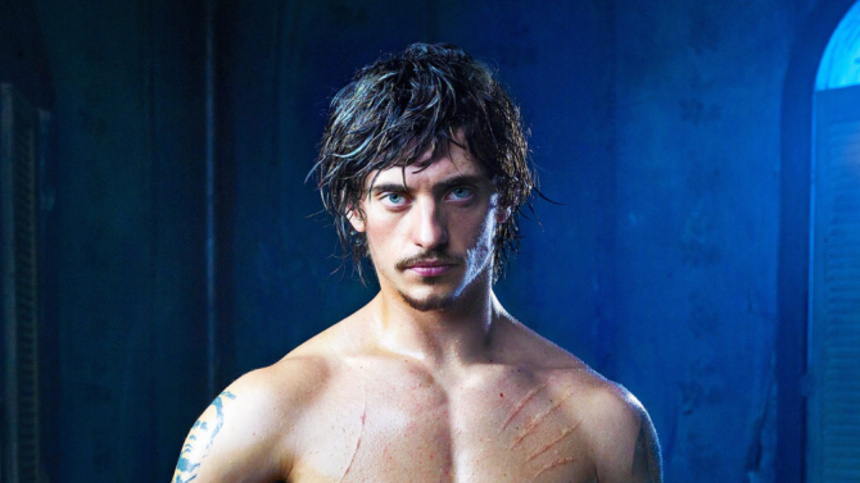Black Nights 2016 Review: Steven Cantor's DANCER Dazzles, But Risks Falling Short

Director Steven Cantor turns his attention to ballet prodigy Sergei Polunin in his latest documentary, Dancer. Having already taken the stage at the 60th BFI London Film Festival, and now returning for an encore at Tallinn's Doc@POFF strand, this feature-length piece follows Polunin's journey from a small Ukrainian town to become the Royal Ballet's youngest ever principal dancer.
Now much adored in Britain, Russia and much of the rest of the world, Polunin certainly attracts a lot of public attention; particularly seeing as he once grew to have a reputation for being a bit of an enfant terrible. But this "bad boy of ballet" really has helped to raise the profile and quality of ballet internationally, and following this class act was by no means ever going to be an easy feat for Cantor.
You Tube enthusiasts may also recall David LaChapelle's video of Sergei dancing to Hozier's Take Me To Church going somewhat viral back in 2015 (with over 16.6 million views at last check). So this was no minor success story to follow in the wake of, but when Cantor presented a rough cut of Dancer at the London Screenings last year, Polunin's sculptural dancing and defiant personality was very much still at the fore.
However, the film as it is now presented to us, with the backing of BBC Films, is perhaps sadly rather changed. Dancer certainly starts off on the same foot - bounding and skipping after a thick-limbed Polunin in extremely form-fitting tights, as he discusses the military-grade energy drinks he takes before shows and a punk rock track plays in the backround. But moments later the film is pirouetting off into something much more conventional - much more of a talking heads type documentary.
Now, of course, there's absolutely no reason why Cantor's documentary should be measured against the eager expectations I brought to it. Nor would I advise anyone to watch the film from this perspective (even if it can be hard to escape). But I just really wish there was more footage of the newly emancipated Polunin - as he is now - bounding about in full HD with all the tricks that cinematography has to offer laid on.
No doubt that would have probably been quite hard to achieve, what with the immensely accomplished Sergei having pretty much all but retired from dancing at the staggeringly young age of 27 (which can be said with no small measure of envy). But there definitely is some kind of unshakable disappointment if you go into this film expecting to see his more contemporary performances. Nor does the film pay much attention to the work that Polunin is now doing to increase the protection and support offered to professional ballet dancers. Instead, Dancer takes a much wider, biographical look at where Polunin came from and what made him.
Now don't get me wrong, the dancer's journey from being a young gymnast in a country recovering from the collapse of the USSR to an international superstar is spellbinding and brilliantly pieced together. As somebody even remarks in the film, you can't help but watch Polunin when he performs. Nor can you help but be mesmerised by his story, and there isn't really a "but" coming as such either.
It is remarkable that so much footage of the artist has been amassed during his lifetime - clearly evidence to the fact that both his family and his friends could all recognize the fame for which he was destined. A destiny which his family literally split up and travelled to the four corners of Europe to support. Equally, we see what a toll this separation took on a very young Sergei, and we learn in footage spreading decades how the young man was pushing himself twice as hard as his peers so he could reunite his family through ballet by becoming a truly successful star.
But as this resolve changes and Sergei began to tire of the unrelenting demands of his dance companies, we are a perhaps treated to a much more intimate glimpse of the emerging thoughts and feelings that ultimately found one great, final release in the LaChapelle video. This journey is definitely both inspiring and discomforting, and it is particularly striking when you see how the pain and passion that is writ large across the dancer's face and heavily-tattooed body is so real - both physically and mentally.
It is impossible not to marvel at the sculptural quality that Polunin's body achieves as he glides to gutturally emotional favourites like Pavarotti's Te voglio bene assai, and at the way he nails leap after leap throughout. This documentary definitely connected well with an audience of art-house fans at Tallinn's glorious, oldest cinema Kino Sõprus - and it's needless to say that it will play well with dance enthusiasts everywhere. It's also already been nominated for a British Independent Film Awards, so could go on to win awards too.
Just maybe don't go in to this film expecting 85 minutes of the same audio-visual delight I get from playing Polunin's Take Me To Church routine over and over. But at the same time, don't just sit at home driving that You Tube video up to 17 million views - see it on a giant, ex-Soviet screen in a snowy Estonian town if possible!







